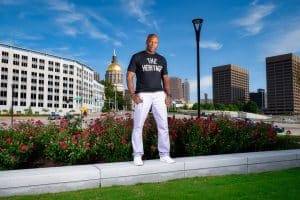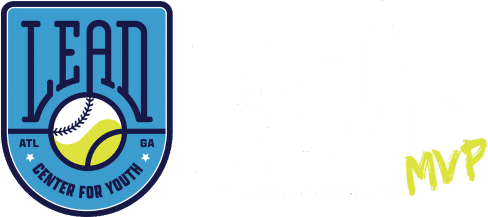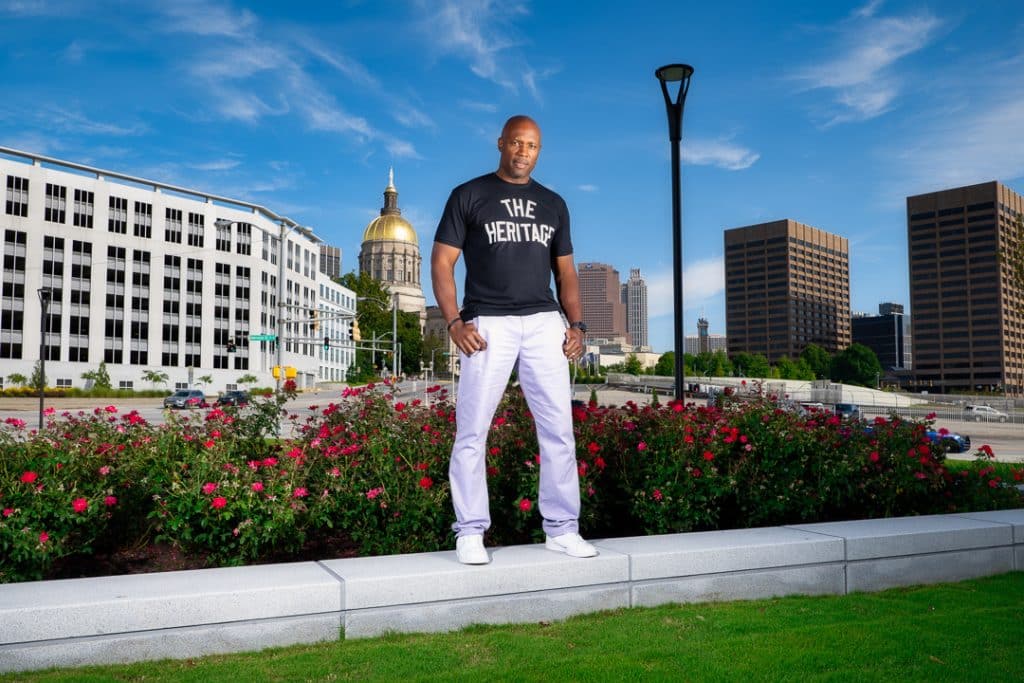
As a child, the rhetoric around me was that sports were for the dumb boys, that the smart boys focused solely on academics. Being an athlete was likened to a four-letter curse word.
Despite this, I fell in love with baseball around the age of eight years old. My grandfather would watch the Chicago Cubs on WGN. Summers were hot in Atlanta, so we would sit in the room and watch the games with the air conditioning roaring. My mother said that at just six years old, I was already saying I wanted to be a professional baseball player.
When I was eight, my parents signed me up to play baseball at the Cascade Youth Organization, which was less than five miles from my grandparents’ house.
When the Cubs games would end, I would go outside and practice my swing by throwing rocks in the air and perfectly timing them to hit as far as I could like Gary Matthews. I improved my pitching by throwing rocks at trees.
As my life became centered and reliant on athletics, I began to shed these misconceptions. I learned that being an athlete grants a high level of critical thinking skills. To be an “athlete” is to get things done even when you lack the knowledge or experience to get it done.
Athletics is even biblical.
24 Do you not know that in a race all the runners run, but only one receives the prize? So run that you may obtain it. 25 Every athlete exercises self-control in all things. They do it to receive a perishable wreath, but we an imperishable. 26 So I do not run aimlessly; I do not box as one beating the air. 27 but I discipline my body and keep it under control, lest after preaching to others I myself should be disqualified. (1 Corinthians 9:24-27, ESV)
Ultimately, athletics taught me how to be committed, disciplined, and gritty.
Learning core values such as these can lead to future success in life and beyond athletics. That is why athletics hold so much value for young Black boys.
Had I not shed the misconceptions about athletics presented to me, my life would not be what it is today. So when people discourage other Black boys from pursuing athletics in favor of academics, I wonder if they are ignorant or stupid.
To be ignorant is to not know something.
Perhaps they are ignorant about the distinction between sports being extra-curricular versus co-curricular.
Perhaps they do not know that sports at the high school level bring the community together in large numbers and offer a sense of pride, belonging, and camaraderie.
Perhaps they do not know that college student-athletes are a driving force of student enrollment.
To be stupid is to know the right thing to do and to choose not to do it to the demise of others.
Stupid people who discourage Black boys from pursuing athletics in favor of academics could be a result of jealousy. The Black Intelligentsia often finds themselves envious of athletes because they do not receive the fame or financial benefits that athletes receive.
I believe this jealousy may have roots that grow even deeper than that.
According to Howard Bryant’s book “The Last Hero,” there are several classes of people in America. Of these, three of them show up at sports venues.
The Labor Class – The Athletes (mostly Black, except in baseball)
The Leisure Class – The Fans (mostly White)
The Ruling Class – The Owners (mostly White)
I believe the Black intelligentsia would like to be a part of the ruling class but are not allowed to due to systemic racism. I also believe that the Black intelligentsia feels embarrassed that Black people are willing participants of the Labor Class.
So instead of recognizing their jealousy and its roots, they decry the participation of Black people, especially young Black boys, in roles within the labor class such as athletes or musicians.
But why should they?
As a follower of Christ, I believe that we all have a calling to fulfill. Both athletics and music were integral parts of society, even when Jesus was on this earth.
19 addressing one another in psalms and hymns and spiritual songs, singing and making melody to the Lord with your heart, (Ephesians 5:10, ESV)
Reflecting on God’s call, John Ortberg wrote “A calling is very different than a request for fulfillment. A calling, though we glamorize it, is not glamorous. It is a response to a summons. It is a kind of surrender. It is a willingness to die to the past and move to the future.”
Men and women that have the gift of athletics and music mattered then, and they matter now.
Antagonists who discourage Black boys from the pursuit of athletics blatantly and willfully encourage these boys to ignore their calling and insist that the calling of athletics detracts from the pursuit of academia.
However, I absolutely believe there is room for both.
Athletics and academics are separated when we look at sports as extracurricular. This separation often happens when it is dealing with children living in poverty. In middle-class and private school settings, sports are often looked upon as co-curricular.
The misconceptions and discouragement surrounding Black boys in athletics do not stop there. Once they commit to the pursuit of athletics, Black boys have a new responsibility thrust upon them.
The responsibility of activism.
Activism is vigorous campaigning to bring about social change.
I do not recall Black athletes being activists in my childhood. I know they existed, but their efforts were “whitewashed” to make them appear non-threatening and docile to White people. Looking back, they were humble to a fault.
I recently read Howard Bryant’s “The Heritage: Black Athletes, a Divided America, and the Politics of Patriotism.” In it, Bryant states that “Today, sports arenas have been transformed into staging grounds for American patriotism and the hero-worship of law enforcement. Teams wear camouflage jerseys to honor those who serve; police officers throw out first pitches; soldiers surprise their families with homecomings at halftime. Sports and politics are decidedly entwined.”
Just as Jackie Robinson showed America that Black and White men can work together and Nelson Mandela used soccer to rid South Africa of apartheid, today the WNBA, NBA, and MLB are coming together under #BlackLivesMatter to take a stand against systemic racism.
I was born in 1976 and as a Black teen, I was taught not to “cause trouble” with regards to race relations. I was simultaneously taught that I could be whatever I wanted to be, but that racism would limit me from being anything that I wanted to be.
As a child, Martin Luther King, Jr. and Hank Aaron were positioned to me to be more of peace-loving figureheads. (It wasn’t until I was much older that I learned about these men in spirit and truth and who they really were to The Movement.)
As a teen, everybody wanted to “Be Like Mike”, but he never took a stance against systemic racism.
Today it is different. Colin Kaepernick and Lebron James are unapologetically leading the way and setting the standard for how to fight systemic racism that specifically oppresses Black people. All Lives Matter, but Black people are and always have been at the back of the race with regards to living the American Dream.
This burden of activism is not one equally carried. Some athletes say nothing when it comes to systemic racism in society, others speak from a place of the passivity of political correctness, and those remaining bear the brunt of the burden.
Some athletes choose to say nothing or are politically correct because they do not want to lose opportunities. To contrast this, you have athletes like Lebron James, who is arguably the greatest basketball player on the planet. I think about King James when I think about Jay-Z’s quote, “I”m not a businessman, I’m a business, man!”
Too often, these stances are met with opposition such as “Shut up and Dribble.”
In 2018, Fox News host Laura Ingraham told Lebron James to “shut up and dribble.”
Ingraham called it “unwise” for children, although I’m not sure what children are watching late-night cable news, to seek political advice from someone who “gets paid $100 million a year to bounce a ball.” By saying this, she completely disregards her own company’s long-documented history of putting athletes and other nonpolitical “experts” on its air.
https://theundefeated.com/features/what-laura-ingrahams-attack-of-lebron-james-really-means/
The “shut up and dribble” argument is the White Leisure Class of fans wanting the Black Labor Class of athletes not to bring politics to the playing field.
I do not believe that you can be a thriving community without athletics. The women and men that are trained in sports can also become the educational, business, and political leaders to make America great. They just need to be committed to training in how to represent their community as well.
The value and skills athletics have brought into my life are immeasurable.
After falling in love with baseball as a child, I met my mentor at age 14. T.J. Wilson was a veteran Atlanta Police Department Officer known for discovering hidden gems in Atlanta’s baseball community.
Within weeks of getting to know Coach T.J., I was receiving professional baseball training at an indoor baseball facility in Forsyth County with Denny Pritchett. I had my first professional workout with the Cubs that year, inching toward my dream of being a “Cubbie.”
I signed a baseball scholarship with Georgia State University during my senior year of high school and was eventually drafted by the Cubs.
My life is an example of how great things happen when your talent is an asset combined with advocacy and access.
I have achieved a lot of success in life and now, I am committed to using my success to serve others. The desire to recreate my achievements and stand against the antagonists who say that athletes cannot be intelligent and stand up for what they believe in, is what led me to establish L.E.A.D.
L.E.A.D. (Launch, Expose, Advise, Direct), bridges the gap between athletics and activism.
It is our Human Ambassador Project. The Human Ambassador Project was birthed from a life-changing experience I had during my 2015 Leadership Atlanta Cohort. From this experience and the revelation received from it, I wanted a way to share game-changing information about race and racism with youth.
Our L.E.A.D. Human Ambassador Project mission is to foster understanding and community between the youth of different races. Our vision is that the participants will grow up to become strategic community partners who will ensure that all of Atlanta’s citizens have access to opportunities that lead to sustainable lives of significance.
L.E.A.D. works to connect the body and the brain through Habitudes®: Leadership Curriculum & Lesson Plans. Habitudes by Tim Elmore combines images, relatable stories, and experiences into leadership development curriculum and lesson plans that resonate with today’s young adults, equipping them to navigate through life’s challenges and opportunities.
We’ve used Habitudes with our L.E.A.D. Ambassadors for over five years.
This fall, we are planning to use ExQ to connect the body and brains of our Ambassadors through executive function training. ExQ is an exclusive, research-informed system designed to enhance the brain’s executive function through game-based personalized training.
In short, L.E.A.D combats all the misconceptions discussed in this blog.
We support and encourage athletics as a route to improved academics and activism.




